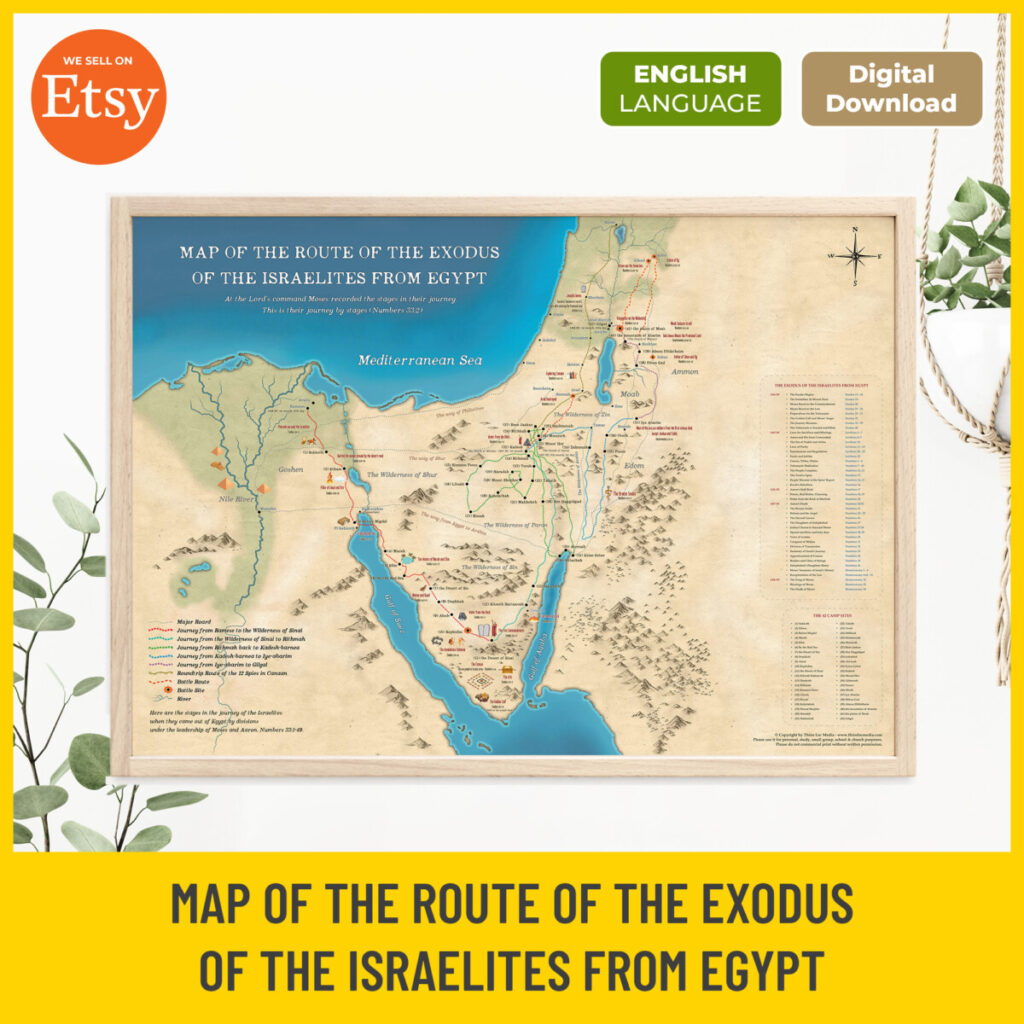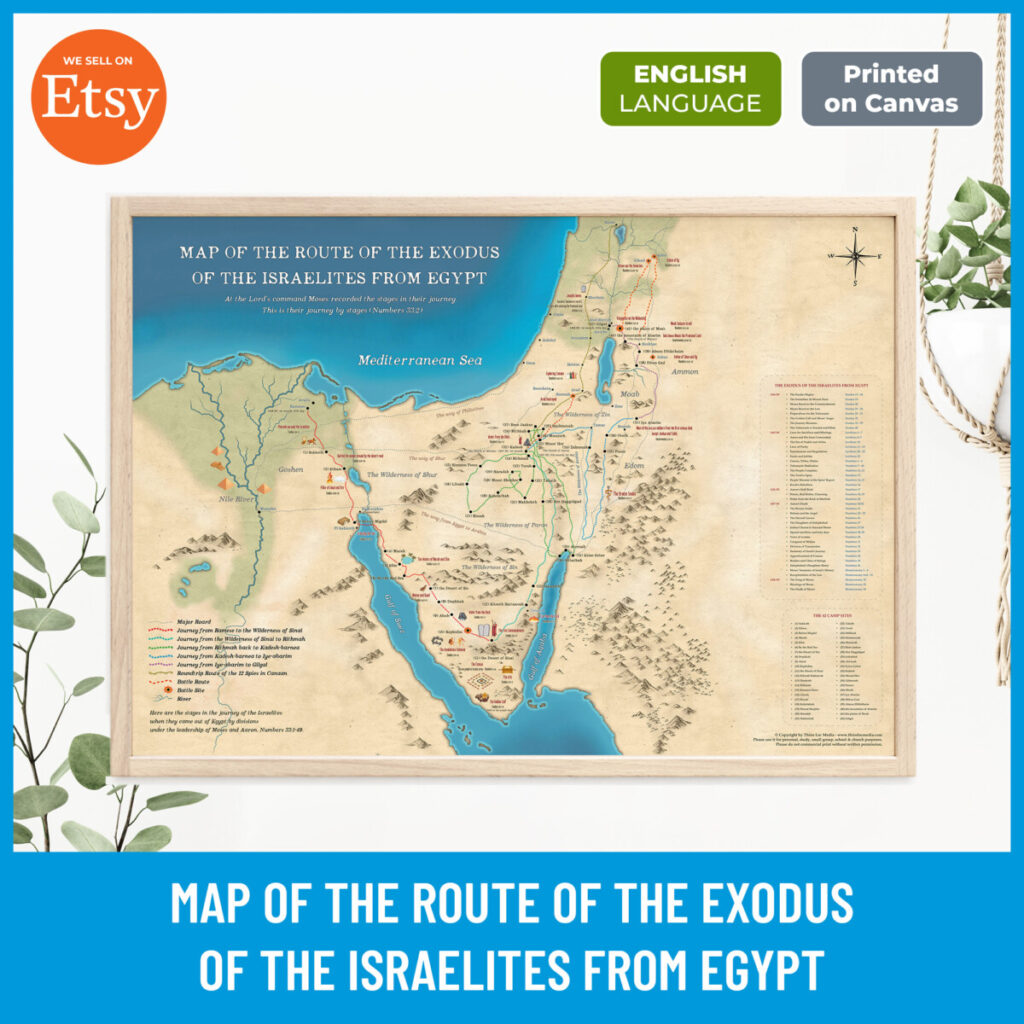The Exodus of the Israelites from Egypt stands as one of the most remarkable events in human history, symbolizing faith, resilience, and divine intervention. This grand journey, led by Moses, was not merely an escape from oppression but a foundational event shaping the identity of the Jewish people. From miraculous plagues to the parting of the Red Sea, the Exodus remains a tale of perseverance and divine promise.
The Historical Context of the Exodus
To understand the Exodus of the Israelites from Egypt, it is essential to examine their status before the departure. According to biblical records, the Israelites initially arrived in Egypt during a period of famine, welcomed due to Joseph’s influence in Pharaoh’s court. However, as generations passed, a new Pharaoh rose to power who viewed the Israelites as a growing threat. Enslaved and subjected to harsh labor, the Israelites cried out for deliverance.
Moses, an Israelite raised in Pharaoh’s household, became the chosen leader to liberate his people. His mission, guided by divine revelation, set the stage for one of the most dramatic events in biblical history.

Moses and the Call to Lead
Moses’ journey to becoming the deliverer of the Israelites began with his encounter with the burning bush. While tending sheep in Midian, he saw a bush engulfed in flames yet not consumed. There, God commanded him to return to Egypt and demand the release of the Israelites. Though reluctant at first, Moses, along with his brother Aaron, confronted Pharaoh with a divine mandate: “Let my people go.”
Pharaoh’s heart was hardened, and his refusal to free the Israelites led to a series of divine punishments.
The Ten Plagues: Divine Intervention in Egypt
To force Pharaoh’s hand, God inflicted Egypt with ten plagues, each more severe than the last:
- Water Turned to Blood – The Nile River, the lifeblood of Egypt, turned into blood.
- Frogs Overrun the Land – Swarms of frogs covered every inch of Egypt.
- Lice Infestation – Dust turned into lice, tormenting humans and animals.
- Flies Plague Egypt – Swarms of flies brought chaos.
- Livestock Pestilence – Egyptian cattle died, but Israelite livestock remained unharmed.
- Boils on Humans and Animals – Painful sores afflicted the Egyptians.
- Hailstorm of Destruction – A deadly storm of hail and fire devastated crops and homes.
- Locusts Consume Everything – Locusts devoured what was left of Egypt’s vegetation.
- Darkness Covers Egypt – A deep darkness engulfed the land for three days.
- Death of the Firstborn – The final plague struck down the firstborn of every Egyptian family.
The last plague marked the institution of Passover, as Israelites were instructed to mark their doors with lamb’s blood so that the Angel of Death would pass over their homes.
The Exodus Begins: Departure from Egypt
Pharaoh, devastated by the loss of his firstborn, finally granted the Israelites their freedom. They left Egypt in haste, carrying unleavened bread, as there was no time to let it rise. This event is commemorated in the Jewish holiday of Passover.
However, Pharaoh soon regretted his decision and pursued the Israelites with his army. Trapped between the Red Sea and the approaching Egyptian forces, the Israelites faced an impossible situation.

The Miraculous Parting of the Red Sea
In one of the most extraordinary miracles recorded in history, Moses, under divine instruction, stretched out his hand, and the Red Sea parted. The Israelites crossed on dry ground, while the pursuing Egyptian army was swallowed by the returning waters. This act of divine intervention not only secured the Israelites’ escape but also symbolized their complete liberation from Egyptian bondage.
The Journey Through the Wilderness
The Israelites’ journey did not end with their escape from Egypt. For forty years, they wandered in the wilderness, facing numerous trials:
- Provision of Manna and Quail – God provided food from heaven to sustain them.
- Water from the Rock – Moses struck a rock, bringing forth water for the thirsty Israelites.
- The Giving of the Ten Commandments – On Mount Sinai, Moses received the divine laws that would govern the Israelite nation.
Despite witnessing miracles, the Israelites struggled with faith and obedience, leading to prolonged wandering before reaching the Promised Land.
The Promised Land: The Final Destination
After forty years, the Israelites finally stood at the threshold of Canaan, the land promised to their ancestors. Moses, however, was not permitted to enter, and leadership passed to Joshua, who led the conquest of Canaan.
The Exodus was not just a physical journey but a spiritual transformation. It established a covenant between God and the Israelites, shaping their national identity and religious beliefs for generations to come.
Significance of the Exodus of the Israelites from Egypt
The Exodus remains a defining event for Judaism and has influenced countless religious and cultural traditions worldwide. It represents:
- Freedom from Oppression – A universal symbol of liberation and justice.
- Faith and Divine Providence – Demonstrates God’s role in guiding and protecting His people.
- Moral and Ethical Laws – The foundation of Jewish law and tradition.
Even today, the Exodus narrative inspires movements for justice and freedom across the world.

FAQs
Why did the Israelites leave Egypt?
The Israelites left Egypt to escape slavery and fulfill God’s promise of a land where they could live freely and worship without oppression.
What were the Ten Plagues of Egypt?
The Ten Plagues were divine punishments inflicted upon Egypt, including turning water to blood, locusts, darkness, and the death of the firstborn, culminating in the Israelites’ freedom.
How did the Israelites cross the Red Sea?
According to the Bible, Moses, under God’s command, stretched out his hand, and the Red Sea parted, allowing the Israelites to cross on dry land before closing on the pursuing Egyptian army.
How long did the Israelites wander in the desert?
The Israelites wandered for forty years due to their lack of faith and disobedience, delaying their arrival in the Promised Land.
What is the significance of the Ten Commandments?
The Ten Commandments, given to Moses on Mount Sinai, form the moral and ethical foundation of Jewish and Christian teachings.
What does the Exodus symbolize today?
The Exodus symbolizes liberation, faith, divine justice, and the pursuit of freedom, influencing various cultural and religious traditions.
Conclusion
The Exodus of the Israelites from Egypt is more than a historical event—it is a timeless story of faith, resilience, and divine intervention. It has shaped religious thought, inspired countless generations, and continues to hold deep significance in contemporary society. Whether viewed as a historical occurrence or a powerful allegory, the Exodus remains a beacon of hope and liberation for all people.
